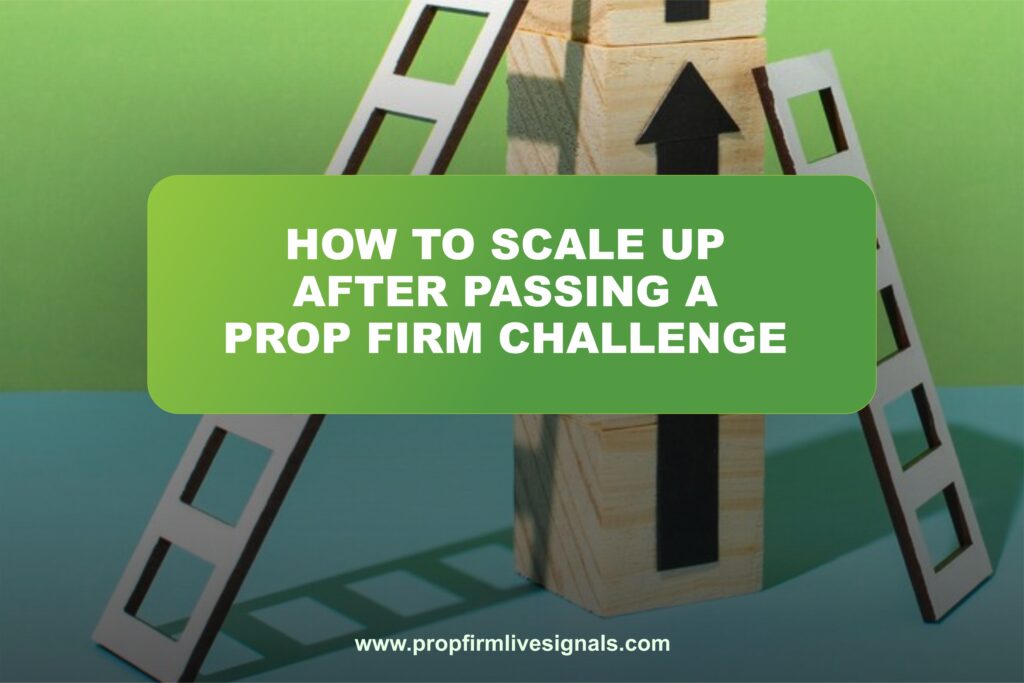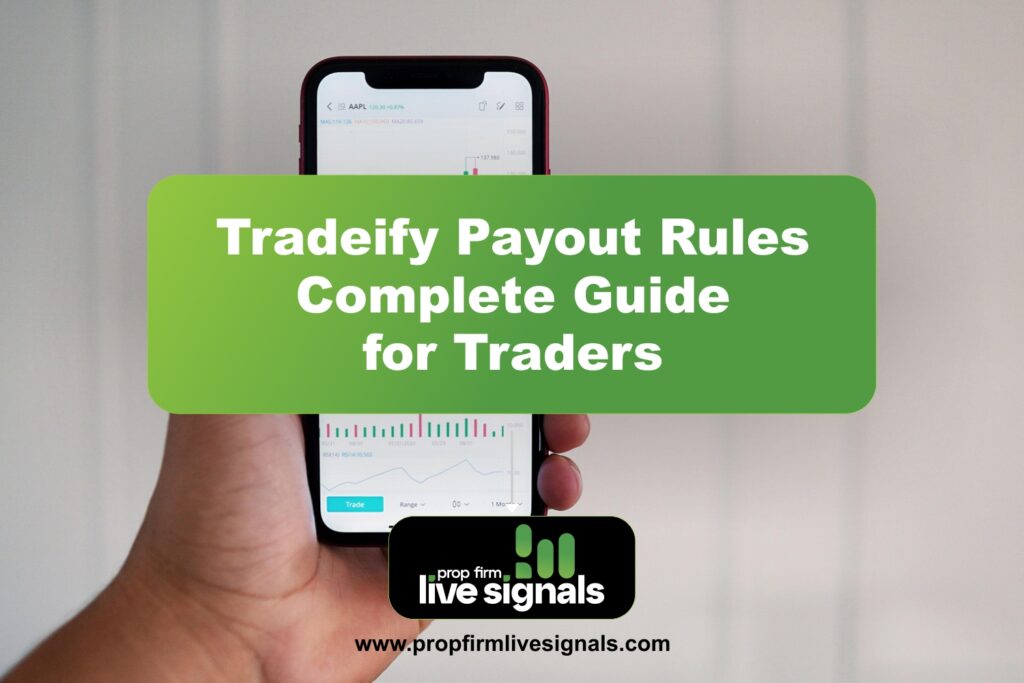Once you have successfully passed a prop firm challenge, the next significant step in a trader’s career path is scaling up the trading account. It means dealing not only with larger sums of money but also perfecting one’s trading strategy and risk management to maximize profits while minimizing risks.
The following article will deal with how to scale up after passing a prop firm challenge essential strategies, best practices, and mindset required for success that is long lasting.
Understanding Prop Firm Challenges
Before scale up after passing a prop firm challenge are discussed, it is very important to understand what prop firm challenges entail. These are challenges tailored to check a trader’s capability in managing risks, following the trading rules, and making some specified amount of profit without hitting the limits.
Typically, traders get a demo account with some sort of rules regarding profit targets and drawdown limits. Once these challenges have been overcome, access opens up to larger accounts that are funded by the prop firm.
Key Components of Prop Firm Challenges
Prop firm challenges are designed to test the trader’s capabilities of generating profits while managing risk given certain conditions. There are usually a number of key components these challenges are made up of that traders need to comply with in order to achieve success and unlock a funded account.
1. Profit Targets
Traders are required to achieve a set profit percentage, often around 10%, within a specific timeframe, such as 30 or 60 days. This tests their ability to generate consistent returns.
2. Drawdown Limits
Strict limits are imposed on the maximum allowable loss. These include both daily drawdown limits and overall maximum drawdown, ensuring traders maintain disciplined risk management.
3. Trading Rules
Every firm then develops its rules concerning trading styles, instruments allowed, and time frames within which targets are to be met. These rules align the traders to the risk and strategy preference of the firm.
4. Restrictions to Leverage
Most prop firms give leverage but contain the size to maintain risk within appropriate limits. The leverage can extend from 1:10 to 1:100, depending upon the policies of the firms.
5. Position Sizing Limits
Traders are often limited to the size of the positions that they can hold. A reason for such a policy is risk management, so that one single trade will not pose an undue risk to the total capital.
6. News Trading Restrictions
Many firms have prohibitive trading during major news events. The reasoning behind this rule is obvious: to avoid increased volatility that could lead to large losses.
7. Consistency Requirements
A trader should be able to work out the challenge by being consistent and not having one big win; the goal is to become profitable and maintain it.
8. Scaling Opportunities
When traders are able to fulfill the requirements of the challenge, they may open up the opportunity to scale up their accounts. It also serves as a reward for those who have continuously performed well.
9. Evaluation Periods
Often, challenges fall into phases, and Phase 1 focuses on attaining profit targets, while Phase 2 verifies consistency in trading with verification of the same risk limits.
10. Refundable Fees
Most prop firms charge for entering the challenge, which is reimbursed once the trader meets the requirements and gets access to a funded account.
Why Scaling Up in Prop Firm Trading Matters
Scaling up, after having passed a prop firm challenge, is a quintessential step towards realizing full trading potential. Here’s why:
1. Increased Profit Potential: Greater capital means being able to hold larger positions, and hence, when the trade works out, greater profits.
2. Diversification: With a bigger account size, one can diversify into multiple assets and/or strategies, thus decreasing overall risk.
3. More Sophisticated Trading Strategies: Scaling up means the opportunity to implement more sophisticated strategies that demand much larger capital, improving the returns and management of risk.
4. Improved Risk Management: A larger account allows more flexibility with drawdowns, reducing the impact of temporary losses.
5. Increased Profit Share: Most firms give more profit sharing as the trader scales up, which means increased earnings on a direct basis.
6. Confidence and Career Growth: With more significant account management, one gains much-needed confidence and opens the door to future grants with higher funding.
Strategies for Scaling Up in Prop Trading
scale up after passing a prop firm challenge: Scaling up in prop trading requires a strategic approach towards the management of increased capital and risk. Here are key strategies to consider:
1. Choosing the Right Prop Firm
Select a firm with favorable scaling plans. Look for firms that offer structured growth based on performance, provide account size options that allow gradual scaling, and have transparent fees and profit sharing structures.
2. Set Realistic Goals
Identify viable targets of profits and limits of risks. Divide your goal into milestones that are easy to achieve; maybe monthly or quarterly targets, and make them compatible with the drawdown limits set by the firm.
3. Develop a Robust Trading Plan
A well defined trading plan is necessary. Concentrate on a few strategies that best fit your strengths, institute proper risk management rules, and periodic trade reviews to sharpen your method.
4. Focus on Consistency
Consistency is key. Keeping to your plan, performing routine checks on performance, and making changes to strategies when necessary is important for the realization of steady, managed progress.
5. Leverage Technology
Leverage advanced trading platforms and market analysis tools to enhance your decision-making and better streamline your trading process, helping you efficiently scale.
6. Maintain Emotional Discipline
Emotional discipline is very important in account management with bigger sizes. A state of overtrading, composure under pressure, and development of techniques for managing stress will definitely assure sound decision-making.
Common Pitfalls When Scaling Up
While scaling up opens up many opportunities, it also carries potential pitfalls that traders need to avoid:
- Over-leveraging: Having too much risk can lead to great losses; always follow the principles of risk management.
- Impatience: Rushing into trades or impulsive decisions can derail long-term success; patience is essential.
- Neglect of risk management: When the accounts are larger, strict risk management becomes even more important; don’t get too confident due to success.
Want to take your trading to the next level?
Take advantage of our LiveSignals, your go to resource for dependable, real-time trading signals, you can eliminate uncertainty from trading.
Propfirmlivesignals is the answer to your constant success in the markets!
You will always be on top of your game with expert analysis and real-time updates. Never let this chance slip away to supercharge your trading journey.
More Info Click here.
Frequently Asked Questions (FAQs)
How important is risk management when scaling up?
- Risk management becomes even more critical when managing larger accounts. Implementing strict risk management protocols helps protect your capital from significant losses and ensures long-term success in trading.
Can I use automated trading strategies when scaling up?
- Many traders use automated trading strategies or algorithms to make their trading more effective. Nevertheless, it is necessary to test the results of any automated strategy in a demo environment before unleashing it with real money.
How can I keep myself emotionally disciplined while trading larger accounts?
To keep yourself emotionally disciplined:
- Always follow your trading plan and avoid making spur-of-the-moment decisions.
- Also, regularly monitor your performance and try to adjust your strategy for better performance.
- Exercise mindfulness or meditation for stress management practices.
How often should I review my trading performance?
- Regular review of performance serves to highlight areas of strengths and weaknesses in your trading strategy. You should be reviewing your performance no less frequently than once a month, or more often if you are trading actively.
Should I diversify my trading strategies as I scale up?
- Diversification can help to a great extent in bringing down the overall risk, but you have to make your prime focus on strategies that you fully understand. Expand into new areas only after having one or two proven strategies under your belt.
How much time does it take generally to scale up after passing a challenge?
- Scales vary from trader to trader as each has his time under performance, market conditions, and following risk management. This could be anytime within months for some traders and more than that for others.


